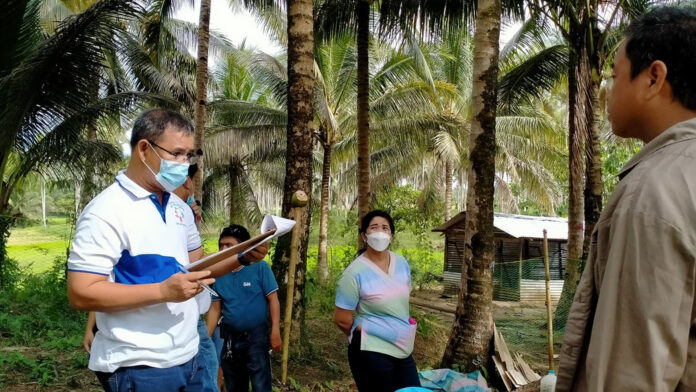The Department of Science and Technology (DOST) is eyeing to bring more projects in remote and poor communities in Eastern Visayas this year through its community empowerment initiative.
At least PHP15.8 million have been set aside this year to implement the Community Empowerment through Science and Technology (CEST) in six provinces, including areas tagged as formerly influenced by the communist terrorist group.
This year’s outlay is three times higher than the PHP4.68 million actual budget in 2020, DOST Eastern Visayas regional director Ernesto Granada said in a press briefing Wednesday.
“We want to provide more science and technology interventions in geographically-isolated areas through economic development, health and nutrition, environmental protection, human resource development, and disaster risk reduction and management,” Granada added.
Among the projects this year is the veggie-based street food making for children of poor rice farmers in Burauen, Leyte, and iron-fortified rice production for indigent families in Laoang, Northern Samar, said Ramil Uy, DOST Region 8 information officer and CEST regional coordinator.
“For our CEST implementation this year, we allocated PHP1 million per congressional district. The DOST provincial director will be the one to identify how many projects will be established based on the budget,” Uy told reporters.
In 2020, projects were carried out in Burauen and Albuera in Leyte; Jiabong and San Sebastian in Samar; Las Navas, Northern Samar; Tomas Oppus, Southern Leyte; Naval, Biliran; and General MacArthur, Eastern Samar.
Launched in 2015, the program specifically targets communities in geographically isolated and disadvantaged areas, the marginalized sector including farmers, fisherfolk, indigenous people, and women’s groups.
Uy said DOST is committed to identifying more communities for CEST through the convergence of various government and non-government agencies, the academe, and other stakeholders.
CEST’s implementation entails the provision and transfer of technology-based livelihood projects to the identified communities.
The desired results from implemented interventions contribute to achieving the Sustainable Development Goals being pursued by the country relative to poverty reduction and people empowerment.
Photo Source: Facebook/DOST Regional Office No.VIII


